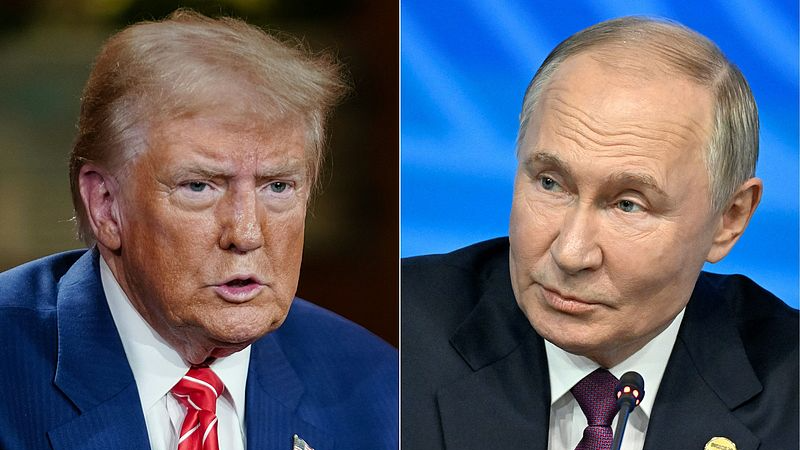In a surprise announcement at the White House on Wednesday, U.S. President Donald Trump said he has called off his planned face-to-face meeting with Russian President Vladimir Putin. The decision came after last weeks phone call, where hopes ran high for a breakthrough in the Russia-Ukraine conflict.
"We cancelled the meeting with President Putin. It just didnt feel right to me," Trump told reporters. "It didnt feel like we were going to get to the place we have to get. So I cancelled it, but well do it in the future."
Kremlin spokesman Dmitry Peskov said the timing of any future summit remains undecided, noting that "serious preparation" is required before any meeting can take place.
Pressuring through sanctions
On the same day, the U.S. Treasury Department announced sanctions on Rosneft and Lukoil, Russias two largest oil producers, in a bid to push Moscow toward an immediate ceasefire in Ukraine. Together, these companies export about 2.2 million barrels of crude oil a daynearly half of Russias total output, according to Bloomberg estimates.
"Now is the time to stop the killing and for an immediate ceasefire," U.S. Treasury Secretary Scott Bessent said, urging U.S. allies to join the effort and warning of further action if needed.
Since the conflict erupted in February 2022, multiple rounds of financial and trade sanctions have targeted Russias key sectors. The latest measures could intensify pressure on energy markets, potentially driving prices higher and challenging supply stability.
Whats next?
With high-stakes diplomacy on hold and sanctions biting, the world is watching how the U.S. and Russia will respond. Will tougher measures break the stalemate, or will tensions escalate further? For global citizens, the next moves in this geopolitical chess game will shape energy markets and international relations alike.
Reference(s):
cgtn.com



